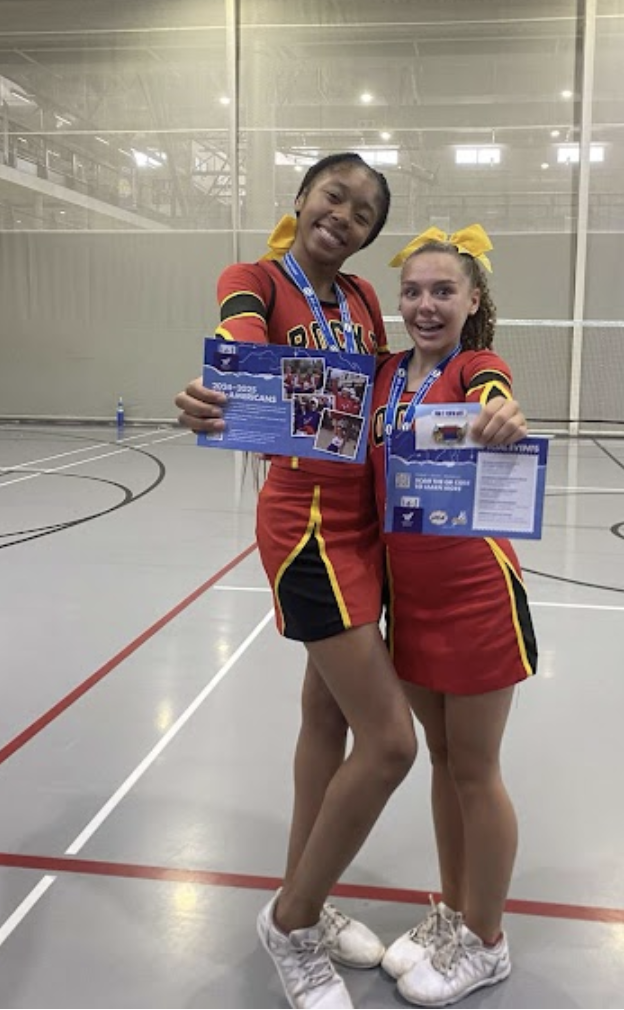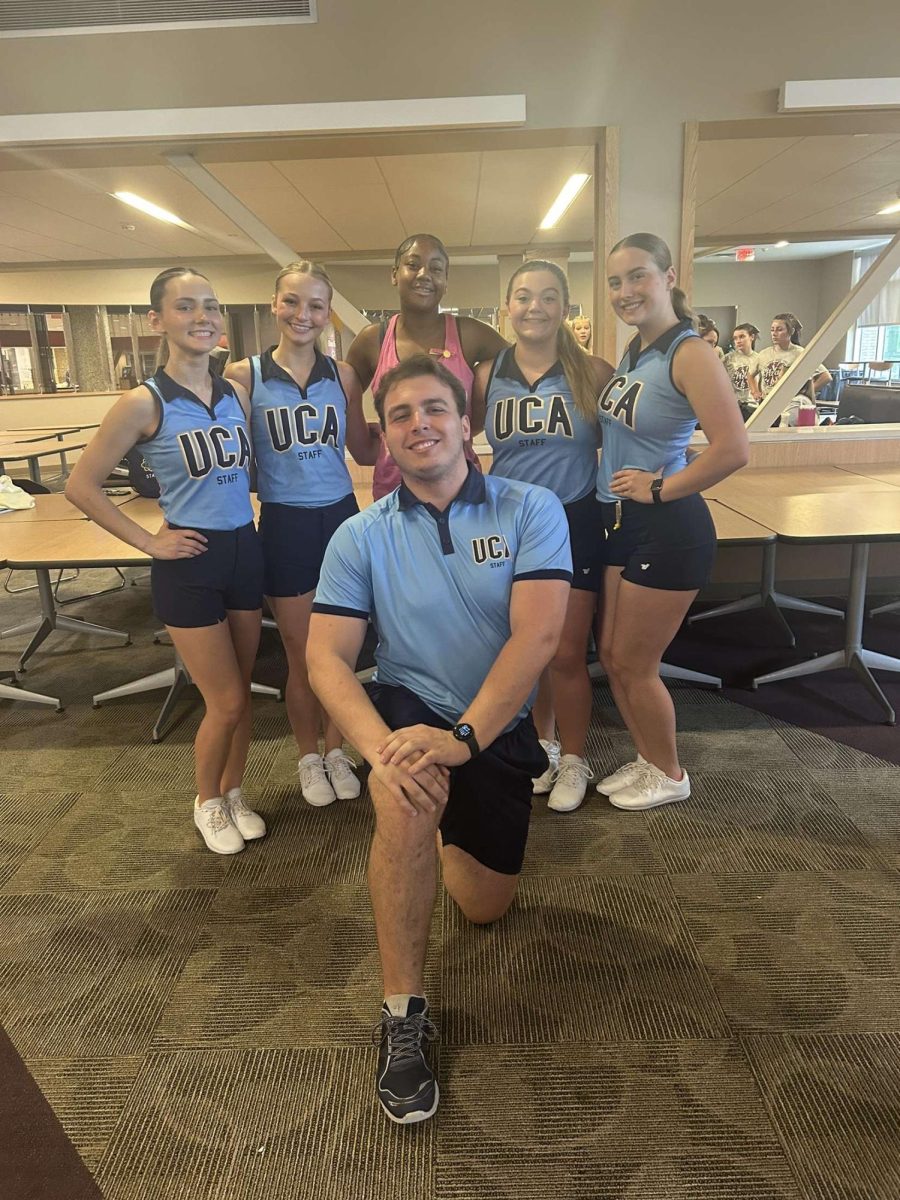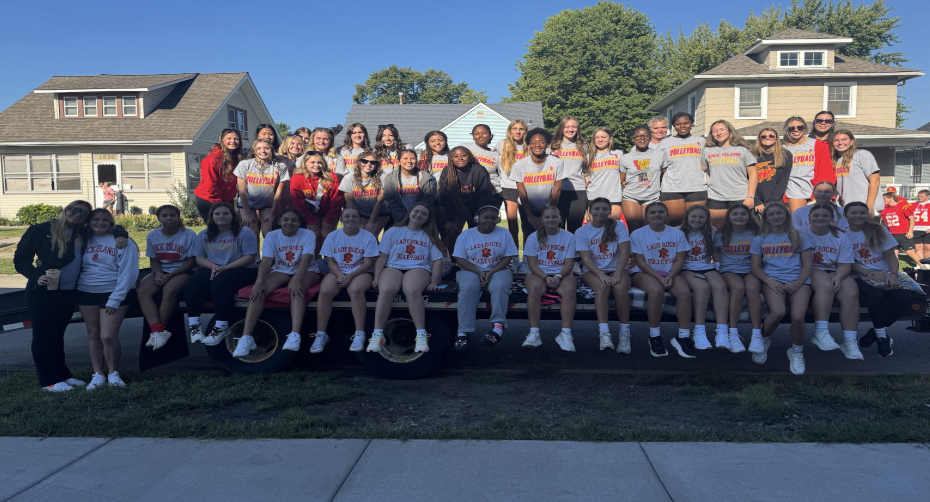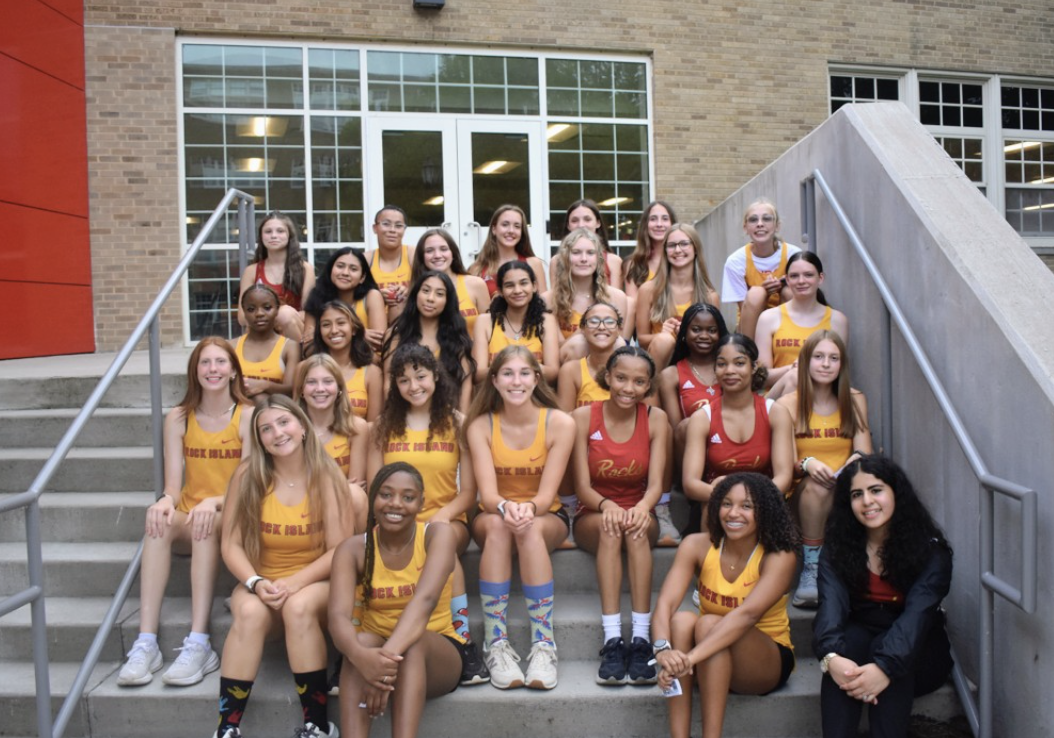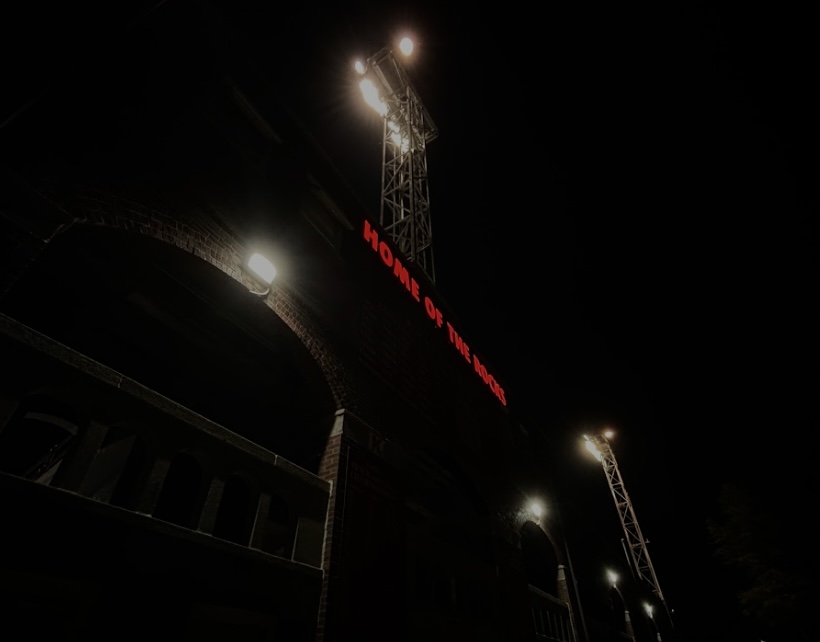Senior Francesca Guyette and senior Larayah Carroll have both been in the cheer program since freshman year, and have both just experienced their last cheer camp! Guyette states how being a senior is a lot different and a lot more responsibilities and greater priorities, explaining, “ It is very different being a senior, like how I have a voice in choosing what we should do, or on another level, how I can try out for All Americans at camp, whereas as an underclassmen, I could not. But another big thing is talking about colleges and what cheer is outside of high school.”
Cheer camp is located at Western Illinois University in Macomb, and is a 4 day training program. “I always need to keep your energy up and going and always do my absolute best! To keep my energy up, I keep a positive mindset the whole time because I know that all the work I do will pay off in the end. My teammates also help me stay motivated,” Guyette states.
She states how much camp and cheer has meant to her over the years, and what she will miss most about this great experience in camp, stating, “Some things will be how close the teams are, and how encouraging everyone is the whole time, but I will miss the UCA staff because they are what made camp so special.”
Camp is a very good experience, especially if you want to cheer after high school. It helps athletes to learn new techniques and stunts to grow better after their time at the high school, if they plan to cheer more. “I’ve learned a lot from camp, not even just the things they taught us, but the things I’ve absorbed. I learned how to work with my teammates, how to stunt with proper technique, how to cope with frustration, how to use my motions to entertain the crowd with the most effect, and how to be a better cheerleader in general!” Carroll stated.
“I would describe cheer camp as an opportunity to bond with your teammates fully. I say this because it’s a time where everyone HAS to come together for a common goal ( which is an inflatable banana). I feel like without camp, it would be hard to bond as much as we do in camp,” states Carroll.
